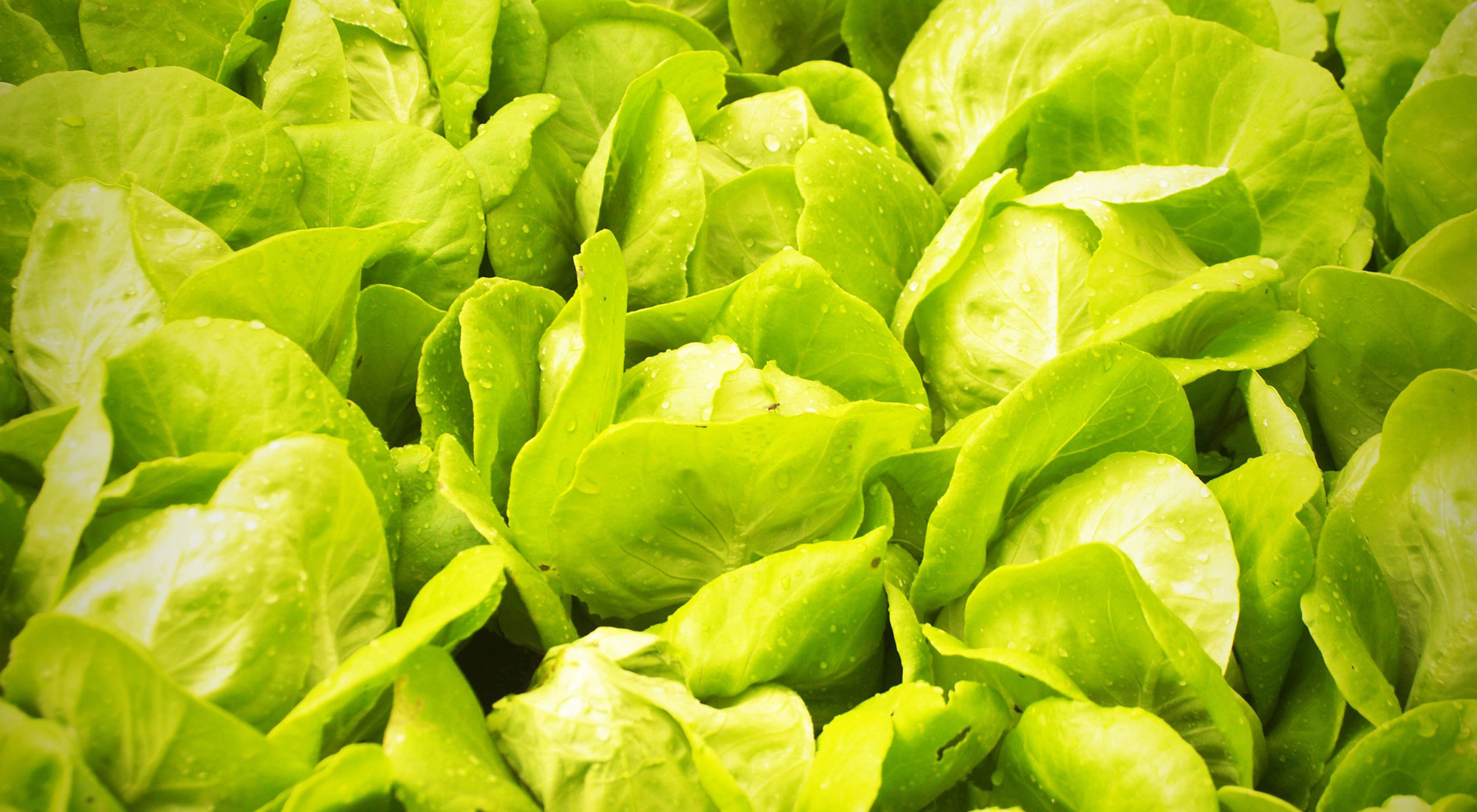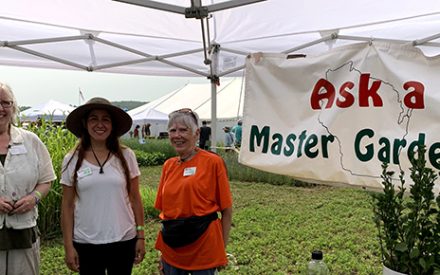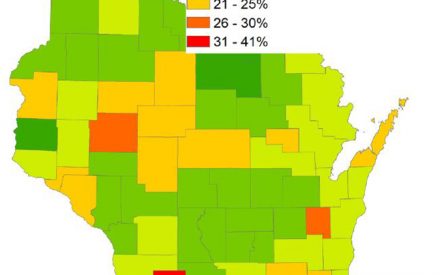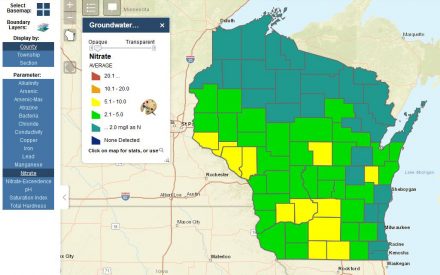Situation
In Wisconsin, over 80,000 acres of fresh market vegetables, tree fruit and berries are produced according to the United States Department of Agriculture (USDA) Census of Agriculture. This acreage is under-represented since many more smaller farms go unreported. Fresh produce growers are required to comply with the federal Food Safety Modernization Act (FSMA) Produce Safety Rule that is intended to minimize the risk of consumer food borne illnesses from the fresh produce they grow.
The FSMA Produce Safety Rule established science-based minimum standards for safe production, harvesting, handling and holding of fresh fruits and vegetables. In order to comply with the rule, fresh produce growers must understand and reduce the risk related to illness caused by food borne pathogens in all aspects of their operations; from the beginning of the growing process all the way to the sale. To help ensure produce growers provide safe food from their farms and follow the law, they need education and technical assistance relevant to their operations.
Response
Fruit and vegetable crops are grown throughout the state in different growing zones, on different soils and with different methods. Produce farming practices in Wisconsin are diverse and there is no one-size-fits-all approach to produce safety. To respond to the unique needs of growers across the state a team developed comprising extension educators representing the different zones, soils and methods. These educators attended a national training and created relationships with other Midwestern states to attain a level of expertise needed to serve growers’ educational produce safety needs. Educators began assisting growers by providing training and by visiting farms to provide produce safety technical assistance needed by growers to pass inspections.
Grower training
Produce growers who are subject to inspection are required to attend an approved produce safety course. Currently the only course approved by the Food and Drug Administration (FDA) is offered by Extension in locations throughout the state. Extension educators partnered with the Wisconsin Department of Agriculture, Trade and Consumer Protection (DATCP) and have hosted 22 trainings for Wisconsin produce growers since 2018.
On Farm Readiness Reviews
Any farm selling fresh produce can request an On-Farm Readiness Review visit. These visits by DATCP and Extension help growers to assess their readiness for a produce safety inspection. The reviews provide farm specific assessment and education to help the grower ensure safe food leaves their farms. All reviews are confidential and any notes or records are left with the grower.
Technical Assistance
Extension provides technical assistance to growers by fielding fresh produce growers’ questions or connect them with someone who can. Extension also hosts a Produce Food Safety Website (https://fsmaproducesafety.wisc.edu/), an important resource for growers with produce safety questions. It includes background information on the Produce Safety Rule, information to help growers determine their regulatory status and links to current produce safety trainings. It also contains fact sheets and videos that help Wisconsin growers understand how to protect customers from food borne illness and to follow the law. Templates for record keeping and documenting qualified exemptions can also be found on our website.
Water Testing Map
Water is capable of introducing or moving pathogens onto fresh produce. As such, water testing is an important component of the FSMA Produce Safety Rule. To help fresh produce growers find the nearest water testing lab that offers the tests they need, Extension created a searchable water testing laboratory map which is updated annually. It is available through the Extension Produce Safety Website.
Increasing Organizational Capacity to Support Growers
Extension developed a solid foundation for educators to be well equipped to support fresh produce growers in understanding and complying with the Produce Food Safety Rule.
- 10 Extension Educators were trained to teach FDA Produce Safety Training
- 4 state Specialists contribute to produce safety education and outreach.
- 8 Extension Educators were trained to provide On-Farm Readiness Reviews
- 10 additional Extension Educators not engaged in produce safety education attended a day long training to stay informed of topics so they can help field grower questions
- 34 Extension educators attended an introduction to produce safety presentation online.
- Due to COVID-19 in 2020, an in-person grower training was replaced with a modified version that offered a synchronous video alternative.
“There’s so many rumors going around about these new regulations, but now I realize it’s about common sense and helping producers keep our product safe for our customers.”
-Workshop Participant
Outcomes
Supporting fresh produce growers
With this foundation, Extension in turn trained fresh produce growers
- Conducted 12 Produce Safety Certification Trainings in 2019
- Completed over 30 On Farm Readiness Reviews in partnership with DATCP
- Conducted 3 Produce Safety Plan Workshops throughout the state helping growers meet the law’s reporting requirements
- Strengthened partnerships with FSMA North Central region and nationally with the Produce Safety Alliance
- Held a joint training with University of Minnesota Extension and Iowa State Extension
- 33 growers attended Produce Safety Summit in the Dells
- Reached out to 250 industry stakeholders
- Conducted 5 Produce Safety Trainings for Plain Faith Audiences
- Created record keeping workshop due to grower requests
Making a difference
- Evaluations were conducted with participants of 2019 Produce Safety Certification Trainings. Based on pre- and post test results from 322 participants (94% response rate) reveal significant increases in knowledge. Knowledge increased an average of 4.1 points, on a 10-point Likert Scale, after participating in the training.
- 84% committed to “implementing produce safety practices on my farm”
- 85% participants reported “increased knowledge of produce safety requirement of FSMA”
- Based on evaluations from the 2020 on-line training, participants increased their knowledge of farm produce safety plans. The majority of growers also reported that within about 24 hours of the workshop they had already completed over 40% of the plan for their farm.
To learn more about this program, contact:
Kristin Krokowski
Commercial Horticulture Educator, UW-Madison Division of Extension Waukesha County
Jay Dampier
Horticulture Outreach Program Manager, UW-Madison Division of Extension Horticulture Program


 Improving FoodShare Utilization at Farmers’ Markets Through a Multilevel Intervention
Improving FoodShare Utilization at Farmers’ Markets Through a Multilevel Intervention Reducing Harmful Chemicals in Gardens & Fields
Reducing Harmful Chemicals in Gardens & Fields Well Contamination in Southwest Wisconsin
Well Contamination in Southwest Wisconsin Ensuring Safe Drinking Water for Rural Wisconsin
Ensuring Safe Drinking Water for Rural Wisconsin


